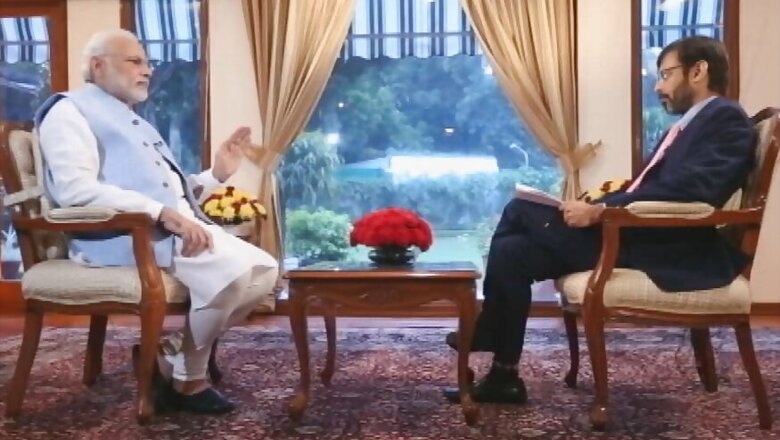
views
New Delhi: Prime Minister Narendra Modi sat down with Network 18 Group Editor Rahul Joshi for a comprehensive interview covering a multitude of topics spanning politics, economy, the criticism of his government following recent attacks on Dalits, vote bank politics and casteism and also offered a rare peek into himself, his working style and his closely held beliefs.
Appended below is the edited transcript of the interview translated from Hindi into EnglishQuestion: At the outset, thank you for giving this interview to Network 18. Two years ago you were elected with a historic mandate, the most decisive in three decades. How do you view the last two years and what do you think has been your biggest achievement?PM Modi: After getting the responsibility of becoming the Prime Minister it has been about two years and three months. India is a democratic country and the people evaluate governments regularly. The media also evaluates. And these days, professional survey agencies also do this. And I think this is a good thing and that's why I leave it to the people to evaluate how my government has performed.
But I will definitely want that whenever my government is evaluated, the situation of the government before we came to power must be kept in mind, what the state of the country was, what the media was discussing. If we keep that in view, those days newspapers were filled with news of corruption, despair... People had lost hope, they thought everything had sunk.
If a patient, however good the doctor, is despondent, medicines will not cure him. But if the patient is hopeful, then even an average doctor can cure him. The reason for that is the patient's inner belief.
My first priority after forming the government was that the atmosphere of despair should be removed and to create hope and belief in the country. That doesn't happen with speeches. Concrete steps need to be taken, it has been shown to be done. And today after more than two years, I can say with certainty that there is hope not just in the people of this country, the trust of the entire world in India has grown.
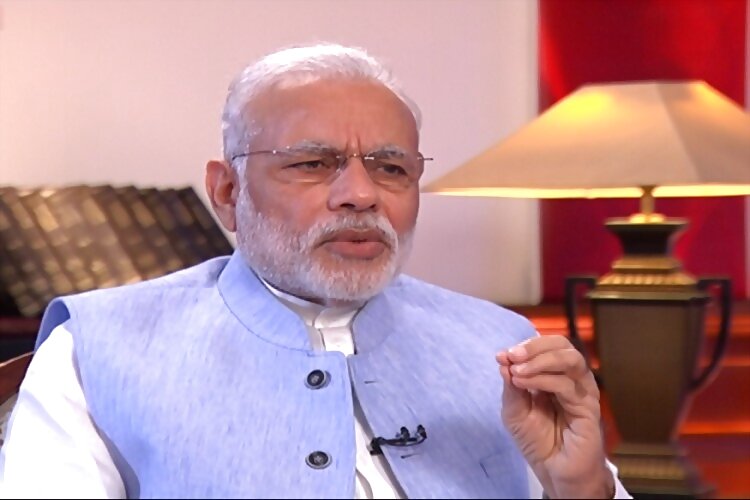
Secondly, today if you go and eat in a hotel, the bill that you get comes with this cess, that cess... People send messages on Whatsapp detailing the bill amount and the cess paid. All this will end. And then we routinely see at octroi and border checkposts, miles of vehicles standing. When vehicles stand, it hurts the country's economy. Now all of it will become seamless, the movement of goods from one state to another.
Taxation systems will also be simplified and this will not only benefit the common man, the revenues will help develop the nation. Today, there are incidents of mistrust between states. This will end that situation, it will be transparent and strengthen the federal structure.Question: After coming to power, your biggest challenge was the economy. The task before you was not just to bring it back on track but also increase the pace of growth. Have you managed to achieve this?PM Modi: You are right that there was a negative atmosphere. The country's traders and industrialists had started looking out. There was a paralysis in government. On the one hand it was this situation. On the other we had to face two successive droughts. Third, there was a slowdown in the global economy. So there were a series of challenges. It wasn't only after we took charge. Even after that there were challenges. But our intention was strong and policies were clear. There was decisiveness because there was no vested interest. The result of this was that positivity spread very quickly.
Today, we have the highest amount of foreign direct investment after Independence. The entire world says that at 7% growth, we are the fastest growing economy. Whether it is the World Bank, IMF, credit agencies, even UN agencies… they all say India is growing rapidly.
So those policies which are helping growth have been emphasised. All obstructions are being removed with policies. All this has resulted in speeding up the economy. This time the rains have been good and this helps agriculture, which is driving force for the economy. This has raised hopes that the coming days will be much better.
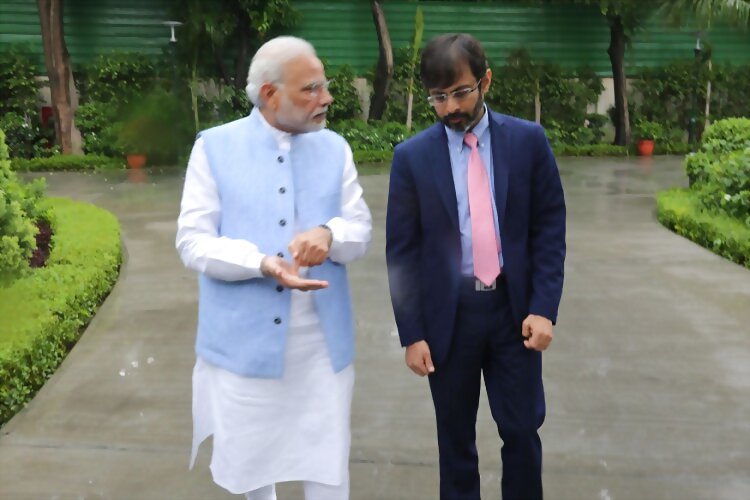
Take ease of doing business. Our ranking is improving very quickly. This is not possible without reform. Our systems, processes, forms were so complicated. These have been reformed, so our rankings are going up. A UN agency has said that from 10 in the next two years, we could be at number three. These small things need to be improved. Even today there exists licence raj in some areas. That needs to go. This is an important reform that is happening at every level -- administrative, governance, legal.
Like for instance we removed 1,700 laws that were from the 19th and 20th centuries. I have asked states also to do so. These are very big reforms that people, because of lack on information, don't consider reforms.
Take education, where we have taken an important step that no one gave attention to. We have said that 10 government and 10 private universities will be freed of all University Grants Commission rules. We will give them money and they must move towards becoming world class universities. If rules were holding them up, we will remove the rules. Now do it and show us. This is a major reform, but doesn't get attention.
Direct benefit transfer is a big reform. Earlier who knew where MNREGA money was going? Now it is sent by DBT. So are gas subsidy payments and student scholarships. For me all these are reforms in governance, transparency. We are getting in more technology. These have to be done at a larger scale. At the Centre of this is the common man. How to make life easier for the common man, how they will get what is their right, we want to stress on these. Question:While there has been economic growth, private investment in the economy is still tepid. Some sectors like real estate are still in trouble. Venture capital funding of startups has slowed. What message would you like to give to private industry and foreign investors at this juncture?PM Modi: Today I think, before presenting the first Budget, I should have placed a White Paper in Parliament on the economic situation in the country. This thought had struck me then. I had two paths then. Politics told me that I should put out all the details. But the nation's interest told me that this information would increase the sense of hopelessness, markets would be badly hit, it would be big blow to the economy and the world's view of India would get worse. It would have been very difficult to get the economy out of that... I chose to stay silent in the national interest at the risk of political damage. At that time the situation in public sector banks was coming out... I didn't put these details out in public. It hurt us, we were criticised, it was made to look like it was all my fault. But I took the political damage in the country's interest.
The impact of all these issues from the past have impacted private investment, like the non-performing assets in banks. I held a session with bankers and told them there will be no call from the government to you. These steps would have tightened the screws.
Despite that, the pace at which roads are being made, how railways is expanding, the six-fold increase in electronic goods manufacturing… these things show we haven't taken shortcuts. And my motto is, as it says on railway platforms: 'short cut will cut you short'. We don't want to take any shortcuts and the results are showing.
Anyway the situation has now improved. We don't have to worry about these things but in the beginning -- in May 2014 -- I chose the tough path. When unbiased people analyse the situation, I am confident they will be surprised.QuestionYou have adopted a tough line on Black Money. In fact, it is said that because of this crackdown on black money, some businessmen are hiding either in Dubai or London. You haven't spared political dynasts either. Will this process continue? PM Modi: Firstly, I have neither looked at this from a political standpoint and nor will I do so in the future. I have been a state CM for 14 years. And history bears witness to the fact that I have never opened any file due to political considerations. I have never been accused of this either. It has been over two years here too. The government has given no instruction to open any file. The law will take its own course. I have no right to indulge in any cover up. You saying that we haven't spared any dynasty isn't correct.
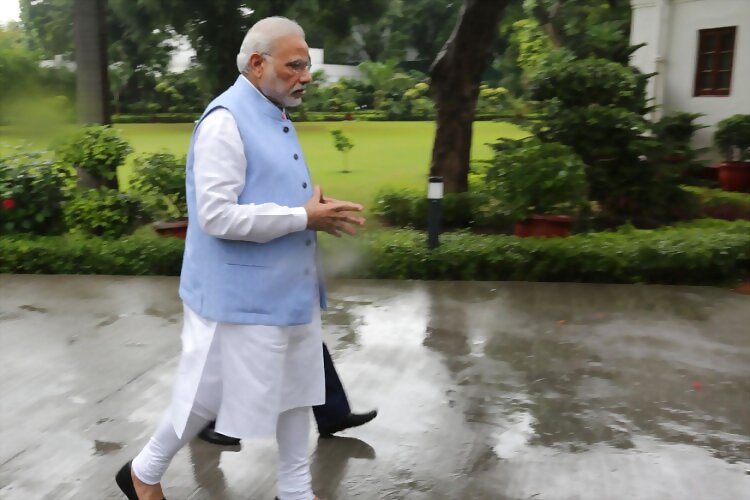
As far as some incidents are concerned, they need to be condemned. It has no place in any civilised society. But we must not forget that law and order is a state subject. Some are selectively picking issues and blaming Modi for it. I don't know what purpose does it serve for those who are doing this. But this is surely hurting the interest of the country. Such incidents must not happen. From a statistical point of view, whether it is communal violence, atrocities against Dalits or atrocities against tribals, data shows that such incidents have gone down in number compared with what it was under the previous government.
But the issue is not of what happened in their government and our government. The issue is that this is not befitting as per our society. We have a culture dating back thousands of years. We have seen some imbalances in our society and we have to intelligently take our society out of this imbalance. This is a social problem. It is deeply rooted. Politics on social imbalances is a disservice to society. To all those who have faced injustice for generations. If you look at dalit MPs and dalit MLAs, tribal MPs and tribal MLAs, the BJP has a sizable presence.
Ever since I celebrated the 125th anniversary of Babasaheb Bhimrao Ambedkar, when the UNO also celebrated his anniversary and 102 countries observed the 125th anniversary, and parliament discussed the life and works of Babasaheb Ambedkar for two days, many people thought that Modi is a devotee of Ambedkar. They started having problems. All those who were self-appointed guardians of Dalits did not like it that Modi is with the Dalits, that Modi devotes himself to tribals. I am devoted to the development of all the dalits, oppressed, underprivileged, deprived, women. Those who see this as an obstruction to their politics are the ones creating trouble.
And this is why they are levelling baseless allegations. All those who have fed this country the poison of caste divide have destroyed this country. They must stop giving political tones to social problems. We must move forward with a purpose. And I want to ask the society also: are these incidents befitting of a civilised society?
I spoke from the ramparts of the Red Fort on the incidents of rape...I said that parents must ask their sons also - where they are going, what they are doing? We ask our daughters these questions.
And I want to tell this to our politicians also, also my party's leaders too: reckless statements, saying anything about anyone or any person's community before the media. The media will come to you. It needs its TRPs. But you are answerable to the nation. And that is why, all those living in public life.. whether political or social workers -- even if we are representing a particular community -- for the benefit of the country's unity, society's unity, for the sake of general bonhomie, we must be extra vigilant.
Whenever we are wounded, even the slightest touch of a paper also causes pain. Thousands of years of injustice have kept these wounds open. The slightest of damage will cause a lot of pain. This is why, it does not matter whether the incident is big or small, what matters is that the incident must not happen in the first place. Which government had more incidents and which didn't is not the point. We all have to work collectively to give strength to the country's unity.Question: How important is social harmony for economic progress?PM Modi: Economic progress alone is not the solution. Peace, unity and harmony is essential for society. Even in a family, no matter how well-off you may be...even if you are sitting over a heap of money, the family's unity is important. This is true for the society also. We don't need unity just to fight poverty alone. We need to be united and harmonious. We need to be committed to social justice. And that is why, unity is not important for economic progress alone. Peace, unity and harmony are useful in family, life, society and for the nation. And to all those who believe in Vasudhaive Kutumbakam, the whole world is one. Question: All political parties talk about removing poverty. Yet poverty remains an issue of grave concern in our country. Job creation is a major challenge for you and you have kept this in mind too. What will be your strategy on both these counts? PM Modi: You are right. Poverty alleviation has been a political slogan. A lot of politics has happened on poverty. And a lot of programmes for poverty alleviation have also been started keeping elections in mind. I do not want to get in a controversy on whether it was good or bad. But my path is a little different. We have to empower the poor to end poverty. If the poor are empowered, then they have enough power to alleviate poverty. Politics can be done by keeping the poor poor. But freedom from poverty can only come by empowerment. The biggest tool for empowerment is education. The next point is employment. If we get economic empowerment, then it can serve as a tool to change things on its own.
All the initiatives that we have taken over the past few years, like the Mudra Scheme - at least 3.5 crore people have taken the benefits of the Mudra Scheme and they got about 1.25 lakh crore rupees through this scheme. Many of them are those who have got money from the bank for the first time. These people will do something or the other. They will get sewing machines, stitch clothes… they will do something. It is possible that they might employ a few. This empowerment will give these people a lot of power. To educate their children.
Suppose a person buys a taxi. Then they would feel they must educate their children. They will move forward. One of the things that we have done is called Stand Up India. I have told banks that every branch must give financial aid to a Dalit, a tribal and a woman. They must make them an entrepreneur.
The country has 1.25 Lakh branches of banks. If they empower even 3 people each, they will benefit 4-5 lakh families. People who did not have this sort of financial empowerment will feel empowered. They will be an economic strength. Start Up India... To give employment to the young, I have started this scheme. These are small decisions. I have also sent an advisory to the states. That they must move forward in this direction.
We have big malls in our country. Lakhs and crores of rupees are spent in constructing them. There is no time restriction for them. They can run till 10 pm, 12 pm, 4am,.but there will be a government representative with a stick in his hand and ask a small shopkeeper to shut his shop...Why? We have said that these small traders who have small enterprises, they are free to be open 365 days, 24/7..so that they can go about doing their business and also employ a few. And these are the people who drive the economy in our country. This is where we are working to empower.
Leaders of political parties, when they meet me, emphatically tell me let us please keep elections aside. They tell me ‘why don't we club assembly elections with Lok Sabha polls?’ And why don't we hold local body elections as well during that time, so that the entire election process gets over in a week to 10 days time and for five years the country runs uninterruptedly? There will be decisions and momentum and the bureaucracy will work effectively. Every party is saying this, but no single party can decide this. All parties will have to unitedly do this. Government alone can't do this. Election commission has the led this effort and all parties have to agree on this. I can have my own ideas, but I can't do anything about it. This has to be done democratically. But I do hope some day there will be comprehensive discussion and debate.
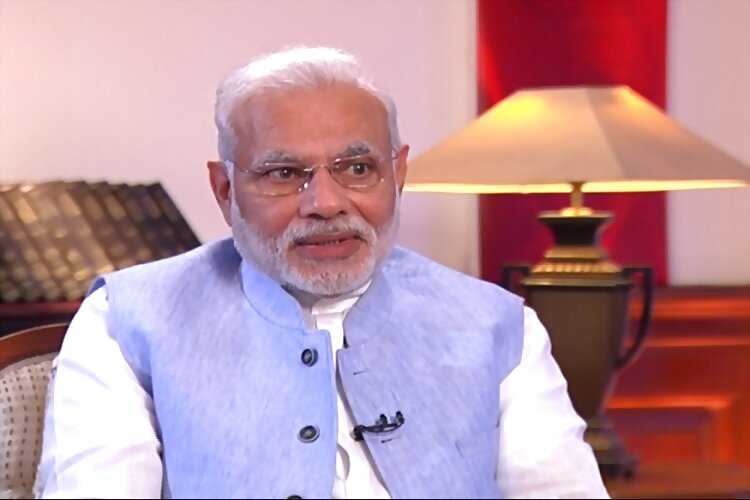
The other day Haryana's chief minister was telling me he is going to make eight districts kerosene free by this November. You would know our farmers used to be desperate for urea and used to buy from black market. Black marketeers ruled. In some states farmers buying urea from the black market were even lathicharged. You must have noticed there is no news of urea shortfall these days. No queuing up of farmers anywhere, no lathicharge anywhere and black marketing has stopped. Why it is not happening anymore? Earlier the urea meant for farmers used to land up in chemical factories on the sly. Chemical factories used to process this as raw material and brought out finished products. They used to get urea cheap. Chemical factories and middlemen enjoyed the cream. We started neem coating of urea. As a result even one gram of urea cannot be used by chemical factories and now entire urea is 100% being used for cultivation only. Additionally, we raised production of urea by 20 lakh tonnes. We are also neem coating imported urea. Not only that, tribals in Gujarat who were engaged to collect neem seeds for this purpose have started extracting neem oil while neem coating, and have earned up to 10 to 12 crore rupees . This is a win-win situation. Corruption and difficulties both gone. Likewise, we can do away with low level corruption through policy decisions and using technology. You will start liking at low level what you liked at top level.Question: Mr Prime Minister, it's being said that Lutyens Delhi did not like you, but have you started liking Delhi? PM Modi: As you know the position of prime minister is such that there's no question of liking or disliking Lutyens Delhi. But there's is a need to deliberate on this. In Delhi's power corridors, there's an active group of people which is dedicated to only a few. It could be because of their own reasons or personal gains. It's not a question of Modi. Look back at history. What happened with Sardar Patel. This group presented Sardar Patel as a simple person from a village with a simple intellect. Look at what happened to Morarji Desai. This same group never talked about his abilities, achievements. It always talked about what he drank. What happened with Deve Gowda? A farmer's son became the PM, yet they said he only sleeps. And what happened with the supremely talented Ambedkar who they are praising today. They made fun of him. What happened with Chaudhury Charan Singh? They again made fun of him. So I'm not surprised when they make fun of him. These custodians who are dedicated to a select few will never accept anyone who is linked to the roots of this country. So I too do not want to waste my time addressing this group. The welfare of the billion people is my biggest task and I will not lose anything if I do not associate myself with Lutyens Delhi. It's better if I live with the poor people of this country who are like me.Question: It's often said in media circles that if TRP rating are down cut to Modi rallies. Still you have a bitter-sweet relationship with media. What do you have to say about the media?PM Modi: Media has played a major contribution to whatever I'm today. Yes, I don't give soundbytes here and there. Media may complain that Modiji doesn't make spicy, controversial remarks. This is a genuine complaint. I'm mostly involved in my work and my work speaks. For a long time I was involved with organisational work. So I have strong friendly association with the media world. There is not a media personality with whom I haven't had tea and not had fun. I know many of them by their names. So those expectations are natural. Mostly media has seen big personalities becoming PM, not someone like me who has spent time among them as a friend.
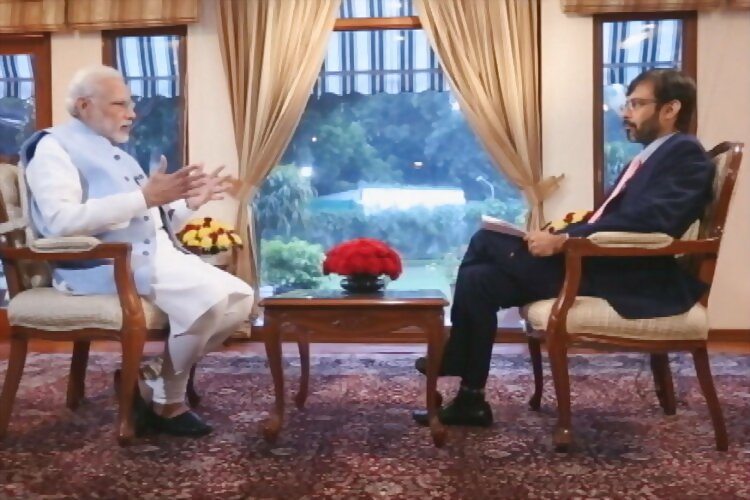
Secondly, one must do justice to one's work, I have always tried that. One must always learn and understand. One must have the courage to leave those ideas that were relevant in the past years back but are no longer now. One must have the courage to change oneself. This is how I developed my style of functioning. Question: You have punishing schedule of 16 to 18 hours. So how do you relax?PM Modi: I relax through working only. I never get tired of working. In fact the opposite tires me. If you have to write 10 letters and you may start feeling tired after writing two. But you feel satisfied if you have finished writing all 10 letters and skipped your meal because you feel the work is finished. Actually we get tired by not working and work gives you satisfaction. That satisfaction gives you energy. I have felt this and always tell this to my young friends. Tiredness is more psychological. Everyone has the same capacity needed for the volume of the work. You keep accepting new challenges and your inner self will always back you. This is in-built.Question: Who have been your key influences in life? PM Modi: My village belonged to the Gaekwad estate and as a child I gained a lot from that environment. The specialty of Gaekwad king was that he used to build libraries and primary schools in every village. I studied in that school. I developed an interest in reading books. Now there's not much time to read. Those books made an impact. From 12 years of age I started taking part in oratory competitions. I used to like Vivekananda quotations and his style of delivery a lot. I had taken a liking for the Hindi language. I can say Vivekananda's thought has made a huge impact on me.Question: Where does Narendra Modi like to find himself in Indian history?PM Modi:Why should a person who loves to live in the present worry about history? One must not make that mistake in one's life. Unfortunately in our country, governments, political parties, leaders have always tried hard to make their own image. What if we had dedicated to build the image of our country rather than our own? The image of this country is the unending legacy of 1.25 billion people. Modi is just one of those 1.25 billion Indians, nothing more. Modi's identity must get lost among those 1.25 billion people. There will be no greater joy for me than Modi getting lost in the pages of history.
Modiji thank you so much for giving me your time. This is my first TV interview and I feel privileged and honoured to done with no less a person than the Prime Minister.PM Modi: Your are from the financial world and yet you did a political interview. I liked your confidence. I congratulate you and keep doing the good work.
You please keep giving us interviews...PM Modi: Why interview politicians only, there are so many others from other walks of life to interview. During election time, reporters start shooting from your bedroom and start asking about breakfast etc. But not many know the sacrifices of our sportsmen. Instead of wasting time on politicians, we should spend more time on our sportsmen -- how they control their food, sleep, how they still stay committed even after losing. Our youth must be shown those sacrifices. I would like your channel to choose 30 sportsmen from the Rio contigent and show their life story. That way we can change the way we see our sportsmen. Also, I feel there are so many personalities to interview beyond politics.
Also read: PM Modi to Network18: Self-appointed Guardians Don't Like That I'm With Dalits










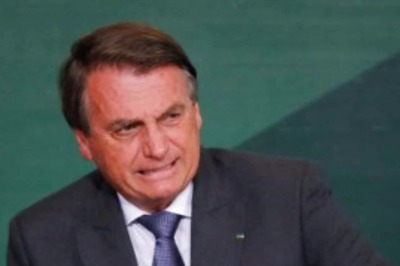

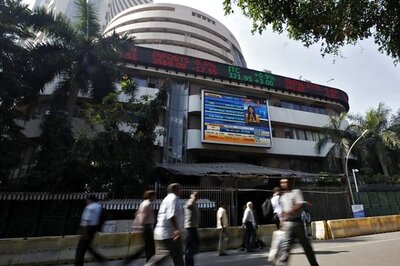
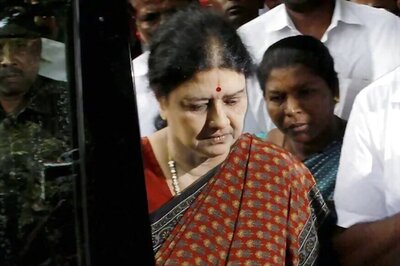

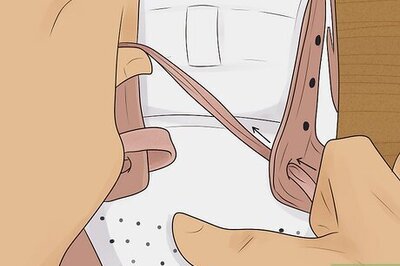
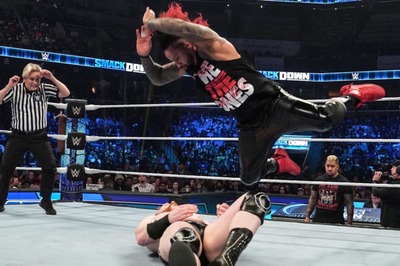

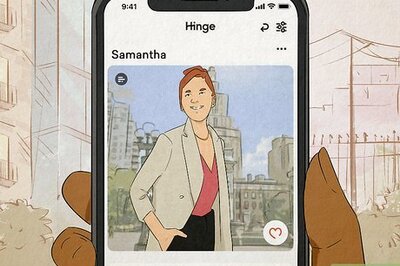
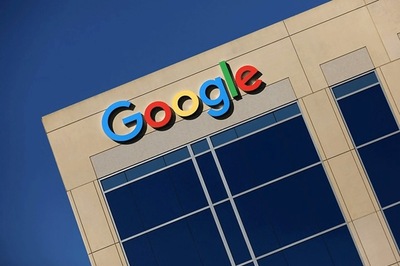
Comments
0 comment